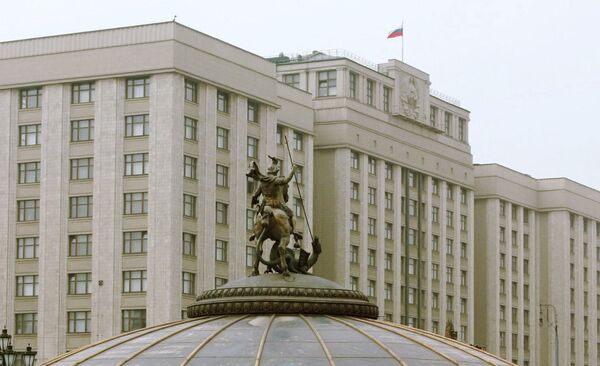MOSCOW, February 14 (RIA Novosti) – Russian lawmakers approved a bill Friday to create a mixed electoral system that will reintroduce single-mandate elections in the next parliamentary vote.
The bill submitted to parliament by President Vladimir Putin last year reintroduces voting for individual candidates for half the seats in the 450-member parliament, scrapping the fully closed-list proportional system used in the last two elections.
While the rules could open the way for opposition candidates to win in single constituencies, opponents of the law argue its real aim is to ensure the ruling United Russia wins as many seats as possible.
Candidates running for direct election to the State Duma, the lower house of parliament, rather than through party lists, would be required to present signatures in support of their bid from 3 percent of potential voters in their electoral district.
Candidates will be allowed to run simultaneously in direct elections and via the party list.
The bill was passed in three readings by the Duma and its progress through the upper house and approval from Putin are expected to be a formality.
In one detail of the legislation that will serve as a blow to smaller parties lacking the resources to ensure nationwide representation at votes, electoral blocs are to be banned.
All registered candidates will be entitled to free air time for electoral campaigning. The maximum elections budget is set at 700 million rubles ($3.3 million) for a political party and 15 million rubles ($500,000) for an independent candidate.
Electoral reforms introduced by Putin in 2003 and 2004 scrapped voting for individual candidates, as well as direct elections for regional governors, leaving the president as the only individual elected directly by voters on a federal level.
Dubbed the “party of swindlers and thieves” by well-known blogger and anti-graft activist Alexei Navalny in 2011 over suspicions of corruption among its higher echelons, United Russia suffered a dramatic slump in popularity ahead of disputed parliamentary polls in December 2011. The party garnered less than 50 percent of the vote in those elections.


